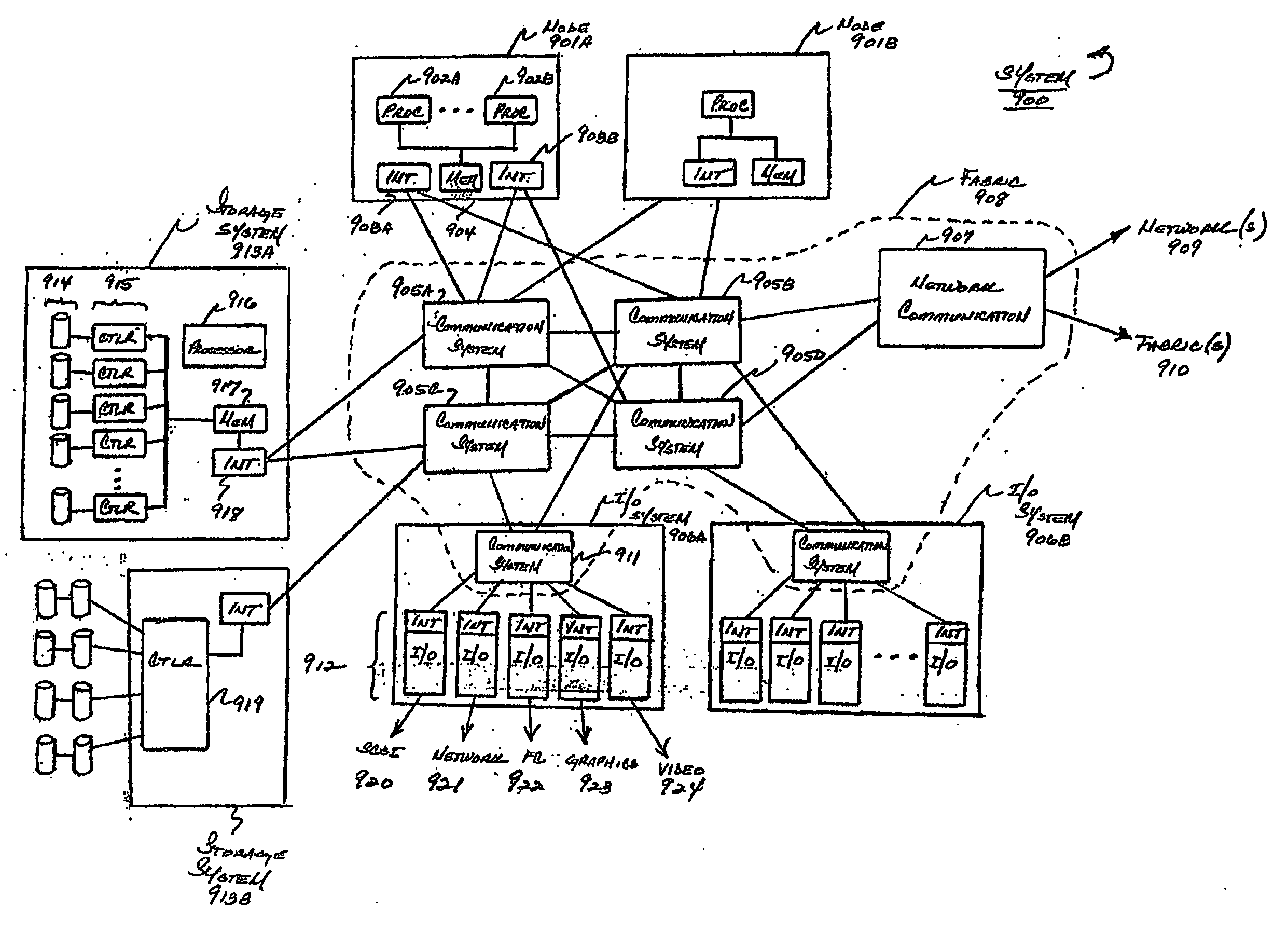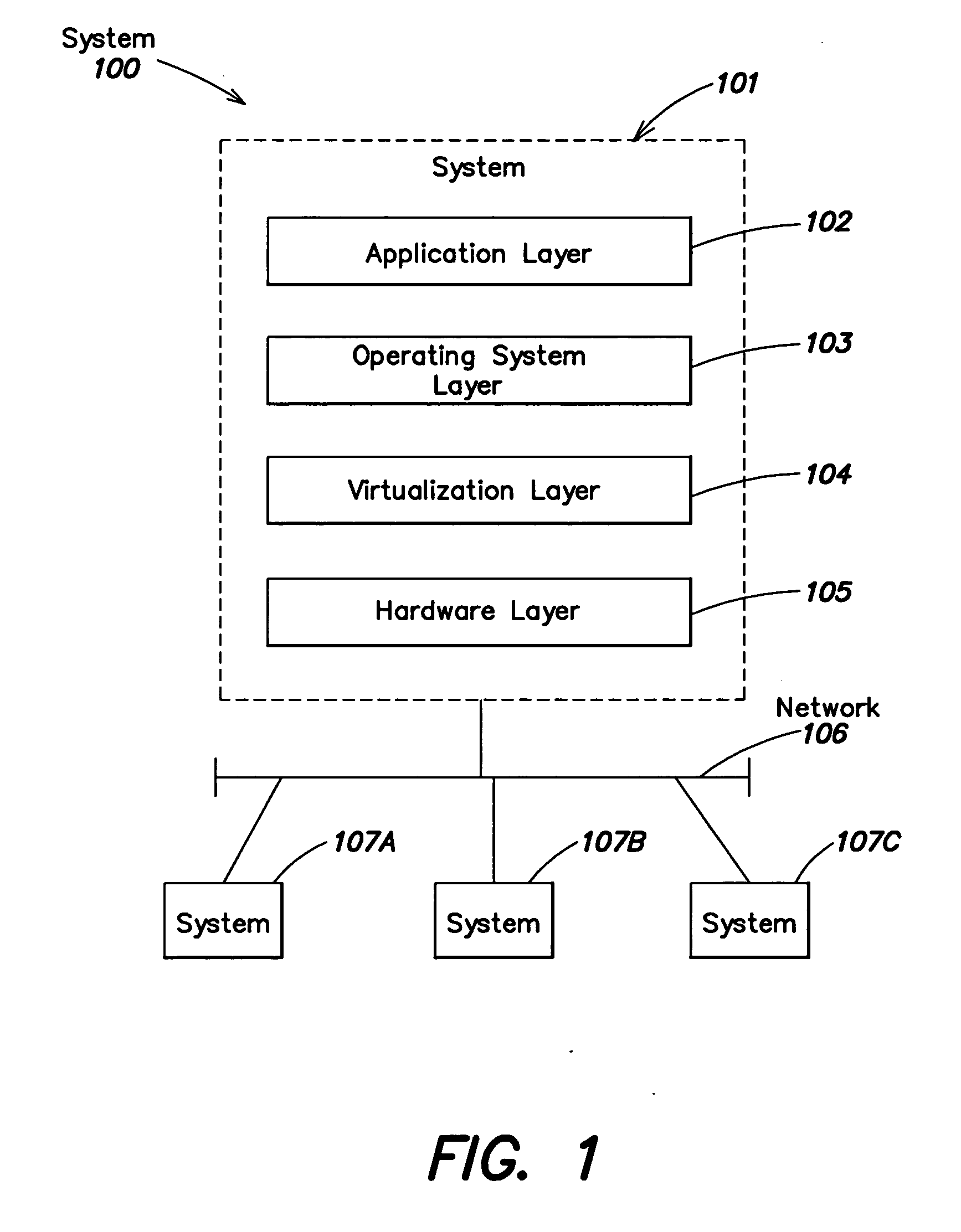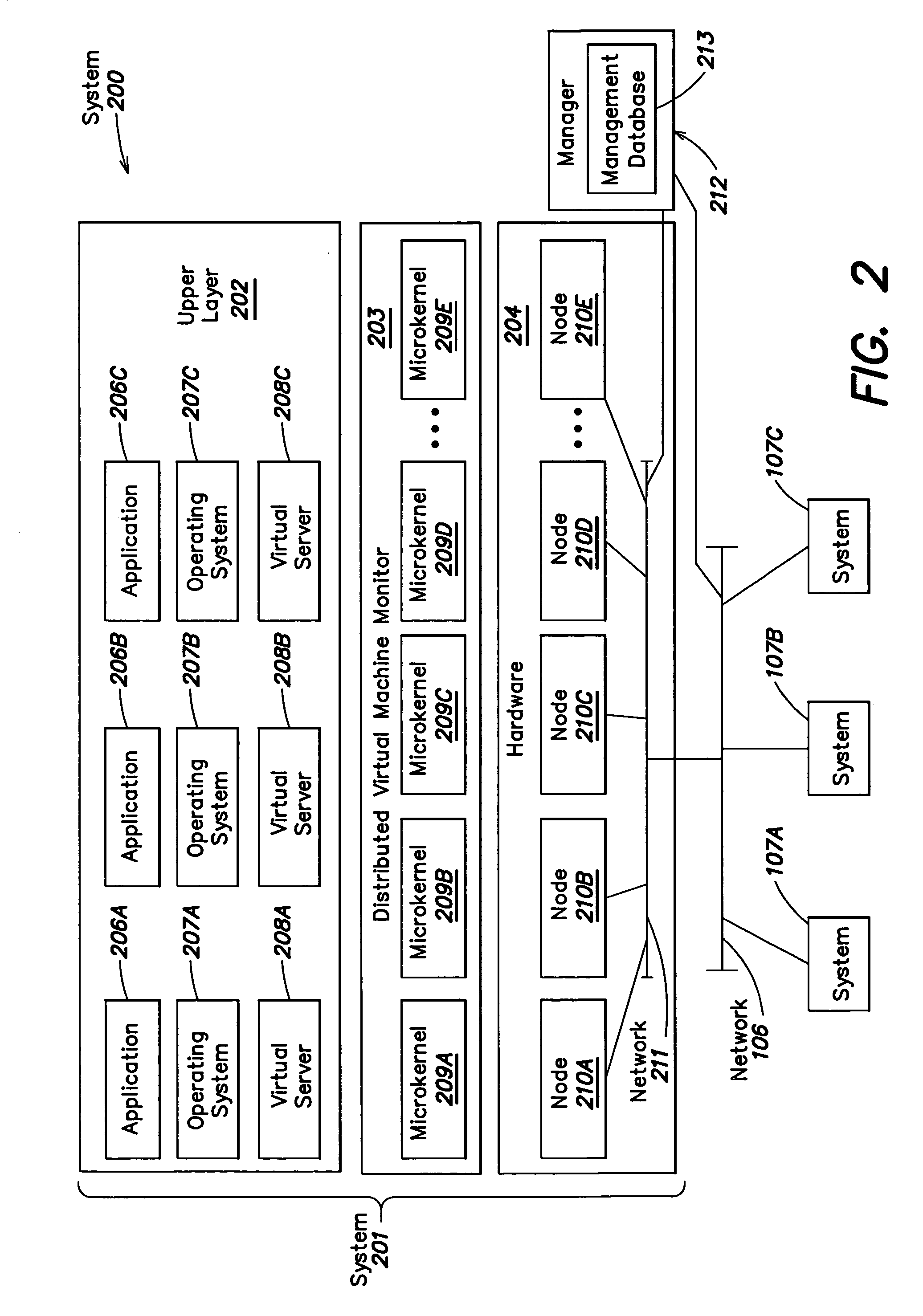System and method for managing virtual servers
a virtual server and management system technology, applied in the field of computer systems, can solve the problems of hard-provisioned datacenter server resources and require server operation interruption, and achieve the effect of reducing the cost of developing a scalable application and facilitating the management of computing resources
- Summary
- Abstract
- Description
- Claims
- Application Information
AI Technical Summary
Benefits of technology
Problems solved by technology
Method used
Image
Examples
example architecture
[0064]FIG. 2 shows an example architecture of a system 201 according to one embodiment of the invention. System 201 includes an upper layer 202 including one or more operating systems 207A-207C executed by one or more virtual servers 208A-208C, respectively. According to one embodiment, virtual servers 208A-208C present, to their respective operating systems 207A-207C, single system regardless of the number of hardware nodes (e.g., nodes 21 OA-21 OD) included in a particular virtual server.
[0065] Operating systems 207A-207C may be, for example, commodity operating systems that may be ported to a Virtual Machine Architecture (VMA) presented by a distributed virtual machine monitor. A virtual server may be an instance of an architecture presented by a virtualization layer (e.g., layer 104). A virtual server may have a persistent identity and defined set of resource requirements (e.g., storage, memory, and network) resource access privileges, and / or resource limits.
[0066] Distributed...
example i
/ O Function
[0207] The following is an example of an I / O function performed in a virtual server as requested by a GOS (e.g., Linux). The I / O function in the example is initially requested of the Guest Operating System. For instance, a POSIX-compliant library call may invoke a system service that requests an I / O operation.
[0208] The I / O operation passes through a number of layers including, but not limited to: [0209] Common GOS I / O processing. A number of common steps might occur including request aggregation, performance enhancements and other I / O preprocessing functions. The request may be then passed to a first driver level referred to as an “Upper Level” driver. [0210]“Upper Level” drivers that are not in direct hardware contact, but provide support for a particular class of devices. The request is further processed here and passed on to Lower Level drivers. [0211]” Lower Level” drivers are in direct hardware contact. These drivers are specific to a virtual server and are modifie...
PUM
 Login to View More
Login to View More Abstract
Description
Claims
Application Information
 Login to View More
Login to View More - R&D
- Intellectual Property
- Life Sciences
- Materials
- Tech Scout
- Unparalleled Data Quality
- Higher Quality Content
- 60% Fewer Hallucinations
Browse by: Latest US Patents, China's latest patents, Technical Efficacy Thesaurus, Application Domain, Technology Topic, Popular Technical Reports.
© 2025 PatSnap. All rights reserved.Legal|Privacy policy|Modern Slavery Act Transparency Statement|Sitemap|About US| Contact US: help@patsnap.com



